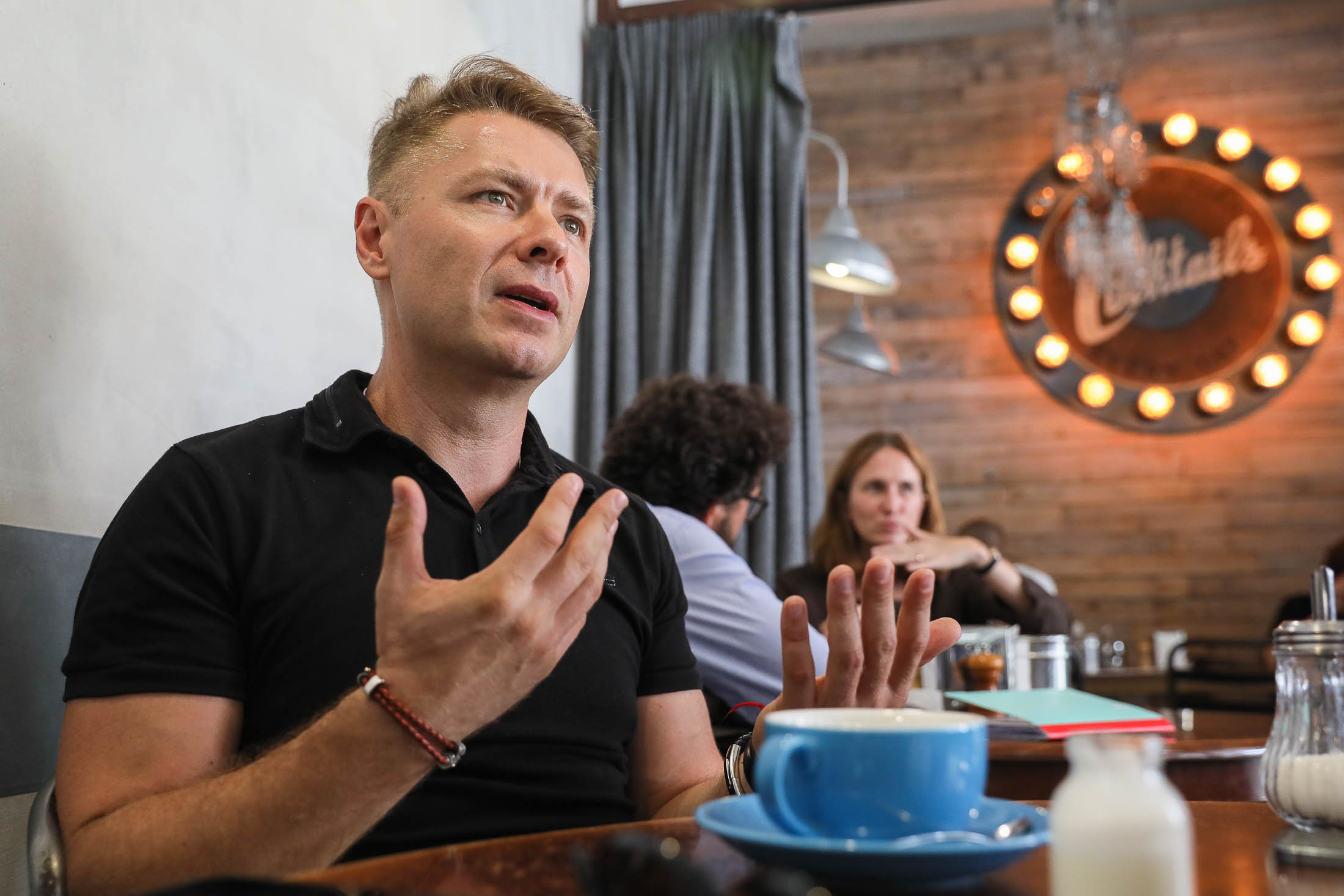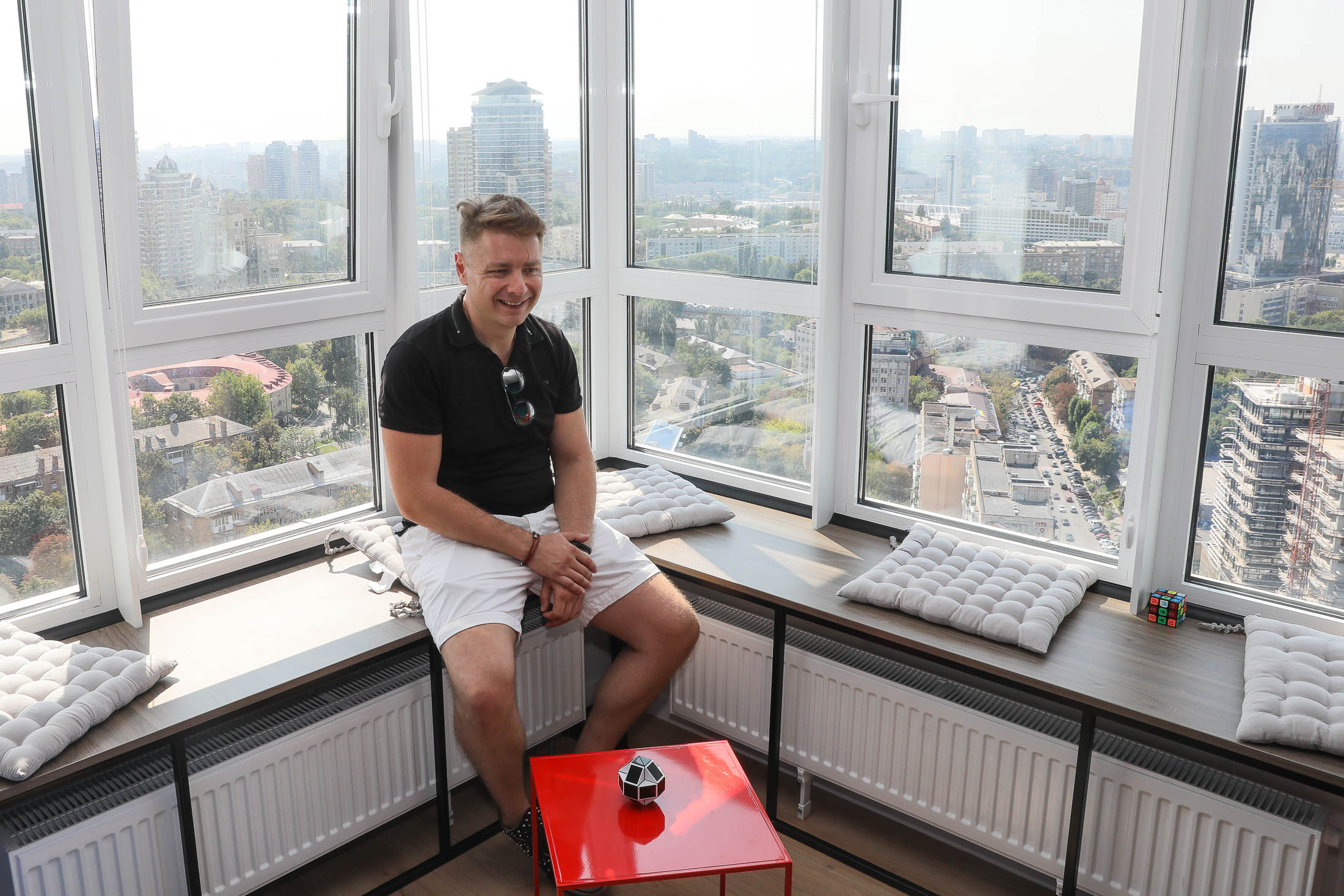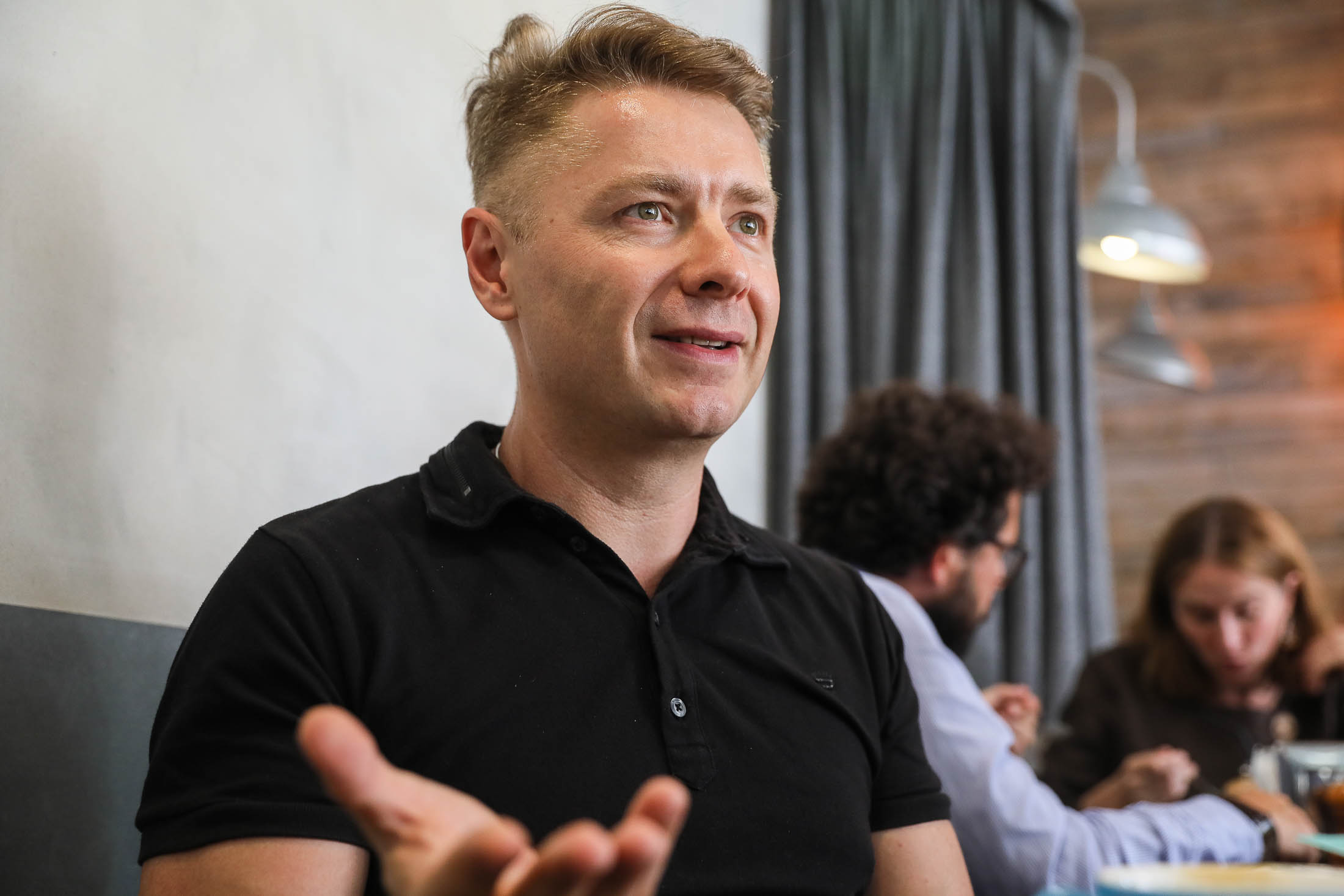When he was 18, Ukrainian Aleksey Klempner arrived in the United States as a refugee. His father, a Soviet nuclear physicist, fled Ukraine after the Soviet Union collapsed to distance his family from the dangers of the lawless, post-Soviet society.
After the family settled down in California in the 1990s, the young Klempner dropped out, worked as a programmer, founded a failed startup, and ended up $100,000 in the red. He repaid his debts running a small software consultancy firm in Ukraine, but he still dreamed of success.
So even after this bumpy entrepreneurial start, Klempner once again plunged into a risky business in the United States: This time he co-founded a tech startup in San Francisco that today claims to be the biggest legal marijuana delivery company in the world.
Complete newbies
Not an avid pot smoker himself, Klempner’s decision to launch a cannabis business in 2013 was a pragmatic choice.
The Ukrainian and his two U.S. partners, Keith McCarty and Roie Edery, were looking to found a company that would satisfy three criteria: its services would be used often, the business would go viral, and the sale item would have a long shelf life.
“Cannabis checked all three boxes,” Klempner said in an interview with the Kyiv Post. At the same time, neither of the co-founders knew much about marijuana. “We were complete newbies.”
They looked at the legal landscape and saw the industry was going towards legalization nationally in the United States, while the Californian market was already the biggest legal one.
“We knew if we controlled California, we’d have a big business,” Klempner said.

Eaze co-founder Aleksey Klempner talks to the Kyiv Post in Kyiv on Aug. 29. Klempner’s tech company Eaze was dubbed “Uber for cannabis” and it now claims to be the biggest legal marijuana delivery company in the world. (Volodymyr Petrov)
Researching the industry, he and partner Edery pretended they wanted to buy a cannabis sales business. They went to meet the owners of one in a rundown district of Los Angeles, Van Nuys. They knocked on the door on the second floor of “a shady building,” no one replied. Then, a car approached, its brakes squealing as it halted.
“Two after-party guys — drunk or something else — turned out to be the owners of the place,” Klempner recalls. “We saw potential in the industry, but judging by those guys, it was utterly unprofessional. We thought that if we could change that, we’d succeed.”
Klempner set an ambitious goal — bring professionalism to the cannabis industry, perceived mainly as incompetent and operating on the edge of legality.
Frequent orders
Klempner’s tech company Eaze has taken a completely new approach to the trade in cannabis over the five years of its existence.
According to Klempner, the company’s professionalism manifests itself in its approach to service: neat drivers in good cars deliver marijuana that’s packed in branded carton packs.
One has to have a license to sell cannabis to be allowed to retail through Eaze. Those who buy either have to be older than 21 or have a medical prescription.
To place an order, a buyer goes to the company’s website, types in their address, chooses from among 60 marijuana brands, and receives a package within 15 minutes. There are currently almost 500 types of marijuana-related goods to choose from on the website.
A user can leave feedback, and “if consumers had a bad experience and report it, our technology allows us to exclude a bad retailer from our database,” Klempner said.
Eaze manages neither marijuana sales nor the drivers delivering it. Instead, it connects buyers and retailers. Generally, it works similar to how on-demand transportation company Uber connects drivers and those who need a ride. Hence, the media have dubbed Eaze “an Uber for cannabis.”
Klempner says in 2017 Eaze got an order every 10 seconds.
“There’s no typical user,” he said. “Our clients are office workers, soccer fans – anyone. Everyone smokes (weed) in California. Except it’s rarely Rastafarians – the industry isn’t that stereotypical anymore.”
Eaze has raised investments four times, so far taking in a total of $52 million. Such a figure, according to Klempner, “speaks volumes” about the quality and size of the company.
Klempner said he was glad he has managed to build such a big company, and though he does not smoke himself, he believes marijuana helps others.
“I’m proud that (Eaze) helps people with stress, pain, sleep and appetite problems; and those who smoke for recreational purposes, of course,” he said. “I wanted to build a big and meaningful business. I’m proud I’ve achieved it.”

Ukrainian Klempner talks with the Kyiv Post in his Kyiv office on Aug. 29. Klempner believes marijuana helps people with stress, pain, sleep and appetite problems as well as those who smoke for recreational purposes. He is sure the cannabis industry and the attitude towards it is changing for better. (Volodymyr Petrov)
Legal limitations
Cannabis is legal in California, but the drug hasn’t been fully approved at the federal level. This has brought several significant limitations to the Klempner’s business.
In 2014, Eaze created a mobile application for smartphones, but could not pass Apple’s requirements to be listed on the App Store. As Apple didn’t allow cannabis apps, Eaze had to focus on operating via the desktop and mobile versions of its website.
Apart from that, Eaze users have to pay in cash. The company couldn’t use payments systems like Mastercard and Visa, as they refused to associate themselves with the cannabis industry.
“These tech companies are cautious, as it’s still a gray legal area, and federal law is still strict on that,” Klempner said. “But I’m sure it will change soon.”
Americans demand more
In 2016 Klempner stopped managing Eaze, stepping down and becoming a minor shareholder. He turned his attention to running several other businesses, including a food industry venture, Bistro Planet. However, he still keeps an eye on the business, and believes cannabis delivery is a growth industry in the United States.
Currently, nine states and Washington D.C. have legalized marijuana for recreational use — no doctor’s letter required — for adults over the age of 21. So Klempner sees space for yet another cannabis company.
His new venture is a marketplace named WAYV; he calls it “an Amazon for cannabis.”
This time, however, he wants to manage the company from Ukrainian offices. For the purpose, Klempner plans to hire “a lot of tech people” in Kyiv and Dnipro.

Donetsk-born tech entrepreneur Aleksey Klempner talks with the Kyiv Post. Klempner has co-founded several companies, including Eaze, Bistro Planet, and now develops WAYV, a marketplace for marijuana products, here in Ukraine. He has two offices here and thinks today Ukraine is an almost perfect base for building a tech startup, for the tech talent is “all over here.” (Volodymyr Petrov)
Ukrainian promise
As his family moved abroad, Donetsk-born Klempner left no family roots in Ukraine. After many years in the United States, he obtained a U.S. passport, but kept his Slavic accent and several childhood friends in Ukraine. The friends were the reason he decided to base his next company WAYV here.
However, there was another good reason to base a tech business in Ukraine — Klempner recognized that modern Ukraine is an almost perfect base for building a tech startup. Software developers make on average $2,000 a month, and pay only 5 percent taxes, which allows for a good standard of living in Ukraine – much better than the same salary could provide in the United States.
“At 25, (Ukrainian programmers) can buy an apartment, a car, and have a decent life. It just doesn’t make sense to move elsewhere. And what happens when talent stays? People start talking, they have ideas, they start creating things,” Klempner said.
And with Ukraine’s IT sector already accounting for around 4 percent of the country’s GDP, Klempner sees tech as an engine of change for Ukraine.
“The tech business will inevitably play a big role in changing the country,” he said.
The Kyiv Post’s technology coverage is sponsored by Ciklum and NIX Solutions. The content is independent of the donors.
